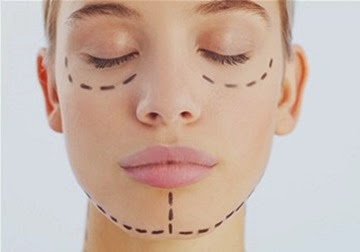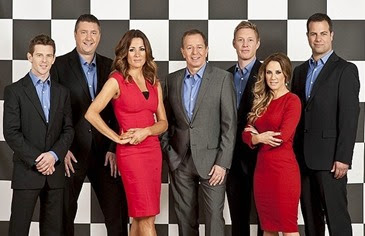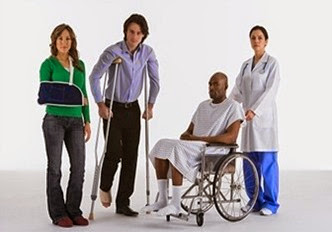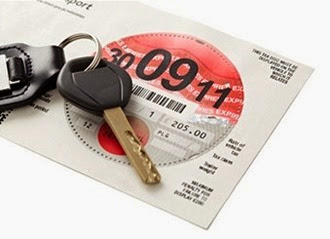
I was reading recently about an interesting US case which concerned, amongst other things, the use of a comma in a contract. It formed part of the volcano of litigation that has erupted following the Deepwater Horizon disaster.
Although the case concerned US law, the principle that punctuation can have a material bearing on the interpretation of legal documents applies as readily in England and Wales as it does on t’other side of the pond.
The case turned on whether a comma was missing from a clause in the contract. The clause had a markedly different meaning with the comma missing compared to when the comma was added.
With the comma missing, the clause read:
“[…] as additional insureds in each of [Transocean's] policies, except Worker's Compensation for liabilities assumed by [Transocean] under the terms of this Contract."
With it added, the clause read:
“[…] as additional insureds in each of [Transocean's] policies, except Worker's Compensation, for liabilities assumed by [Transocean] under the terms of this Contract."
It’s a great illustration of the fact that, sometimes, use of punctuation can be absolutely critical. In this case, it was critical to the tune of $750,000,000!
That got me thinking even further (it does happen occasionally!). My recent post on the written communication skills of young lawyers focused on, amongst other things, poor sentence structure in the writing of lawyers to be. A big part of that poor sentence structure is the misuse of commas.
So how difficult is it to educate yourself about how to use commas correctly? Not very difficult, as it turns out.
Two seconds on Google turned up a very useful guide produced by the University of Bristol.
Here are a few excerpts from their guide on commas.
The comma is a much misused and often over used piece of punctuation.
Here, here!
1. To separate the elements in a list of three or more items
| The potion included peanuts, pop-tarts, bran flakes and coleslaw. |
There appears to be some debate about whether or not to include a comma to separate the last two items in the series. [Use of a comma in this situation is known as an Oxford comma. Conventionally, it is normal] to omit the comma before the final 'and' unless there is a danger that the last two items in the series will merge and become indistinguishable without the comma.
| His favourite puddings were black forest gateau, apple strudel, and jelly and ice cream. |
Using an Oxford comma after the word ‘strudel’ is the sentence above is advisable so as to indicate that the jelly and ice cream is a single item.
2. Before certain conjunctions
A comma should be used before these conjunctions: and, but, for, nor, yet, or, so to separate two independent clauses. They are called co-ordinating conjunctions.
| She was a fantastic cook, but she would never be as good as her mother-in-law. |
| He hated his neighbours, so he never invited them round. |
A common mistake is to put the comma after the conjunction.
3. To separate introductory elements in a sentence
Use a comma to separate introductory elements in a sentence from the main part of that sentence.
| Given the appalling weather conditions, Jonny was lucky to make it home alive. |
| As the night drew to a close, the revellers wandered home. |
4. To separate parenthetical elements in a sentence (i.e. to serve as brackets)
A comma is used to set off parenthetical elements in a sentence. The parenthetical element is part of the sentence that can be removed without changing the essential meaning of the sentence.
| Sarah, the most intelligent pupil in the class, was always late for school. |
| The pyramids, one of the wonders of the ancient world, lie just outside Cairo. |
If you are using a comma to do this, it is important that the aside is opened and closed with a comma. A common mistake is to omit the second comma.
Eagled-eyed readers will have no doubt noticed that the case of the missing comma, mentioned above, concerns a comma used in just this situation. (The use of commas in my previous sentence is another example of it, of course.) Permission to roll your eyes: granted.

Paul Rylance, in the excellent Writing and Drafting in Legal Practice, provides another example of the pitfalls of poor comma use:
“A counter-notice must be given to the landlord, who may, or may not, be the immediate landlord who served notice terminating the tenancy and must be given within two months of the landlord’s notice.”
So, is it the “immediate landlord who served the notice” or just the “immediate landlord”? It should have been the latter.
A better handling of it would have been to use brackets – as shown below:
“A counter-notice must be given to the landlord (who may, or may not, be the immediate landlord) who served notice terminating the tenancy and must be given within two months of the landlord’s notice.”
Personally, I’m not sure you really need the commas within the brackets after “may” and “not”, but I’ll defer to Paul’s better judgement on this one.
5. To separate direct speech or quoted elements from the rest of the sentence
Commas are used to separate direct speech or quoted elements from the rest of a sentence. Use a comma to separate the quoted material from the rest of the sentence.
| "That house there," he whispered, "is where I grew up." |
6. Commas are used to separate elements in a sentence that express contrast
| He was first attracted by her charming personality, not her stunning looks. |
| She is intelligent, not pretty. |
| He thought the building was enormous, but ugly. |
I think commas used in this situation are ripe for abuse. Providing both clauses of the sentence are very short and it’s genuine contrast that’s being expressed, I think it’s fine. However, it doesn’t take much for these situations to slip firmly into semi-colon territory.
7. Commas are used for typographical reasons to separate dates and years, towns and counties etc.
| His home was in Streatham, East London. |
| My father was born on March 13, 1949. |
8. Commas are used to separate several adjectives
| The old, ramshackle, dilapidated house had a charm of its own. |
| That rather dull-looking, badly-dressed, clumsy man is actually a university professor. |
Rylance identifies some other instances where commas should be used:
[9.] In reported speech, to mark a person addressed. For instance, “thank you, your honour”.
[10.] Usually after a phrase that begins with a present participle (-ing). For instance, “standing to address the court, he began his speech”.
[11.] To mark off words and phrases such as “therefore”, “however”, “of course” and “for instance”. Depending on where in the sentence the comma appears, use of a comma in these circumstances can be very similar to a pair of parenthesises or to separate an introductory phrase from the rest of the sentence.
I believe that the comma is probably the most abused piece of punctuation in English and it’s a problem which seems to be getting worse, not better.
The comma can be a particularly difficult piece of punctuation to get to grips with. I think there are a number of reasons for this.
First, there are a multitude of ways in which commas can be correctly used (with some similarity between those categories in certain instances).
Secondly, there’s a degree of discretion as to where commas can be used correctly. Rylance notes the existence of a ‘catch-all’ category for using commas:
“[…] to insert a pause into a sentence so as to break it up into articulate phrases or clauses. The test […] is to read the whole sentence, noting where the voice naturally pauses.”
For the record, that absolutely shouldn’t be taken as carte blanche for whacking in commas hither and thither, just because your voice might pause naturally there.
Thirdly, there are a number of conflicting authorities on correct comma usage. Those authorities are probably best treated as guides rather than absolute rules; providing you don’t stray too far from them, you should be fine.
I think most people’s writing can benefit from some careful consideration of proper punctuation from time to time (mine included). And you might just find that reflecting on your use of commas when you’re at a loss in the office on a quiet afternoon is time very well spent. It’s just a pity you can’t get CPD points for it!
























 The England squad: excelling at failure since oooh – at least the 1990s
The England squad: excelling at failure since oooh – at least the 1990s 



